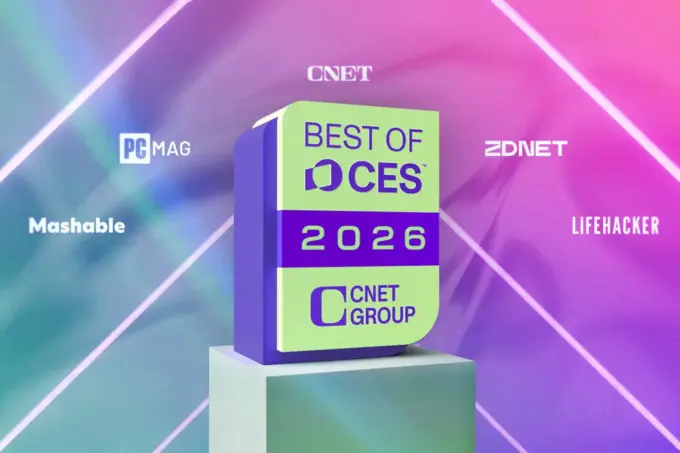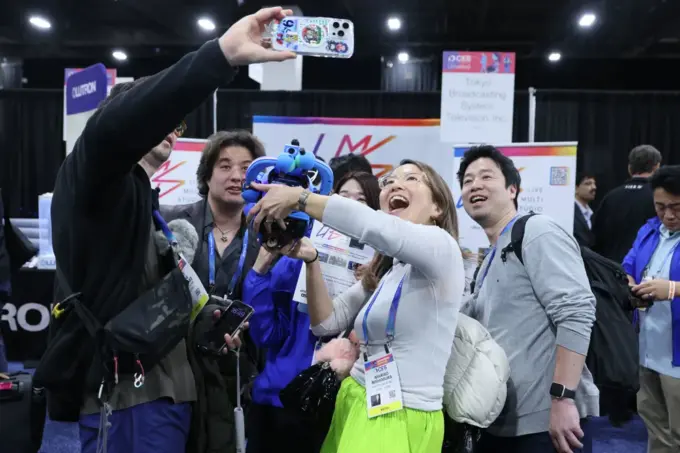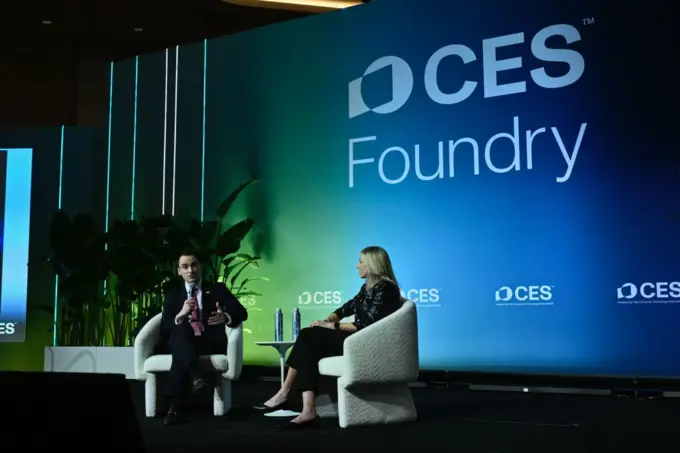Even the biggest, best-known businesses were once embryonic, many growing from a single entrepreneur’s one bold idea. As in years past, CES 2024 celebrated the risk-taking visionaries who hurtled into the startup maelstrom. Among the 1400-plus startups present at CES 2024, many shared insights and experiences on the CES Startup Stage. Take a look at a small set of those working to make the world better through climate change solutions, more equitable access to funding, and availability of quality mental healthcare. These sessions from the Startup Stage are among the 19 available on demand.
Extreme Tech Challenge Spotlights Climate Innovators
The Extreme Tech Challenge (XTC) and the Cadence Giving Foundation staged a climate-centered program January 10 at CES 2024 to spotlight innovations that advance the UN’s 17 Sustainable Development Goals. The event, hosted by Cadence and XTC, blended ideas, education and networking to energize action toward a more collaboratively sustainable future. Challenge finalists pitched their concepts – under the XTC and Cadence banner, Deep Tech Innovations to Drive Climate Change Solutions – for countering climate change, advancing decarbonization and otherwise breaking barriers to a greener planet. This forum matters because, as the organizers noted, XTC is the world’s largest startup competition for entrepreneurs addressing global challenges.
Cadence President Nicole Johnson framed the event at CES 2024, saying (from 7:23):
“It has been really inspiring to be at CES this week to see all of the incredible technology that’s being developed, all of the new tools, all of the really useful, inspiring, amazing technology…The greatest issue of our time, that’s the issue of climate change. When you take really smart people, and you have them innovating, and you have them innovating for good, that’s magic…We as a philanthropic foundation struggle to figure out how to support innovators who are working on this…The startups that you’re going to hear from…are working on our world’s greatest issues. They’re working in the air, they’re working on the water, they’re working in innovative technologies to make an impact on climate change, and we are deeply grateful to them.”
ISO Seed Money for Underrepresented Entrepreneur Populations
Too often, women and people of color are discounted by funders when seeking financial backing. In this session, experts explore the myriad challenges. They also present strategies for surmounting obstacles when entrepreneurial brainchildren aren’t taken seriously for reasons other their merits. Kickstarter’s Heather Swift Hunt, head of design and technology, offered experience-based insights (from 9:29):
“I think the stats are just shocking…Of the $240 billion of startup funding that was made in the U.S. last year, just 2% of that went to women. So, 50% of the population: 2% of the funding. For Black-led startups, it’s even lower, it’s 1%, and that’s actually down from last year…Another stat that blows my mind is the racial group with the highest amount of business leadership in the U.S….is Latinos. They’re an incredible group of entrepreneurs and business leaders, and yet, still, only 2% of venture capital funding flows to those people…Every city now has an incubator, accelerator, and I think that they’re really hungry for startups to bring into their programs. I would encourage any startup founder to seek out the incubator, accelerator, in their community.”
Mental Health: Confronting Obstacles, Evaluating Tech
Few would question that the state of mental healthcare in the U.S. is dire relative to therapies that promote lasting wellness. Expert panelists delved deeply into root causes ways tech can make a difference. Executives from ResMed, Fort Health, ZAMA Health and AiBerry, Inc., discussed why access, diagnostics, therapies and more are problematic, and what can be done to resolve issues.
On the topic of quality care, for example, Fort Health CEO Natalie Schneider, observed this (from 19:12):
“It’s very difficult to objectively tell whether [a specific therapy] is good. Going back to that statistic that only 20% of mental health is evidence-based, only 20%; the rest of it is the wild, wild West. So, when we talk about quality, there’s the objective clinical standard…But, then, there’s all the different quality measures around the patient experience like wait time. On average, in the youth mental health space, the wait time is about 15 weeks.”
On the topic of tech that can promote improvements, Schneider said (27:27):
“…We’re experimenting with two applications [of AI] I’m super excited about, and it’s in the talent space. We’re experimenting with recruiting and using AI avatars that evaluate choice of verbiage…your facial movements, etcetera and, really, gives that candidate a score…We’re also looking at using it for [CBT] training. We send all of our licensed therapists through an additional four weeks of intensive CBT training. It’s tough to do that live, and it’s not super scalable, so we’re experimenting with using AI avatars to do that, as well.”

















Leave a comment